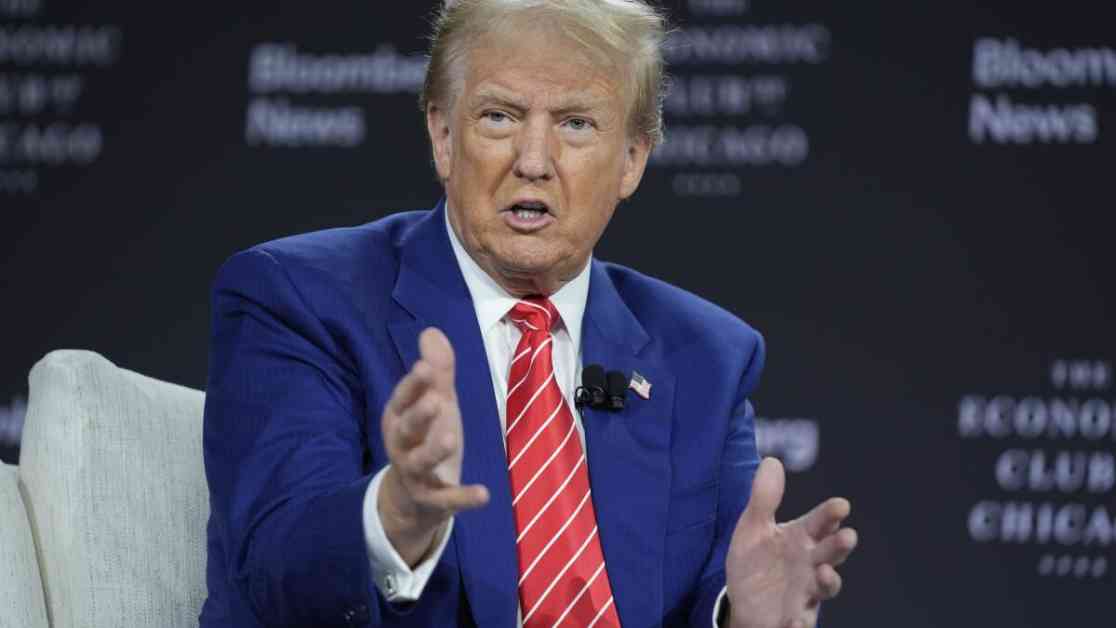Former President Trump spoke at the Economic Club of Chicago and discussed his potential conversations with Vladimir Putin, praising the benefits of having a relationship with other world leaders. Although he did not confirm the reported calls with Putin, Trump emphasized the importance of maintaining friendly relations for the country’s benefit. This aligns with his history of praising Putin, even amidst criticism from others like Kamala Harris.
A new book by Bob Woodward alleges that Trump and Putin have spoken several times since Trump left office, shedding light on their ongoing communication. The book also reveals that Trump sent COVID-19 testing equipment to Russia during his presidency, further highlighting the complex relationship between the two leaders.
During the event, Trump shared his views on tariffs, expressing his belief in using them to protect American companies and incentivize new businesses to move to the country. Despite criticism from some quarters, Trump remains a staunch supporter of tariffs as a means of safeguarding the nation’s economic interests.
When asked about the January 6 Capitol insurrection and the peaceful transfer of power, Trump sidestepped the question and made misleading statements about the events of that day. His refusal to acknowledge the gravity of the situation raised concerns about his commitment to upholding democratic norms.
Trump’s appearance also included disagreements with the moderator and criticisms of various political figures. His confrontational style and tendency to veer off-topic underscored the divisive nature of his leadership and communication style.
Overall, Trump’s speech in Chicago reflected his unapologetic approach to politics and policy. His continued focus on issues like immigration and federal spending demonstrates his commitment to certain key priorities, regardless of public opinion or criticism from opponents.
As the 2024 election looms on the horizon, Trump’s unwavering confidence and willingness to engage in public discourse suggest that he remains a dominant figure in American politics. The upcoming months will likely see further debates and controversies surrounding his legacy and potential political future.



























